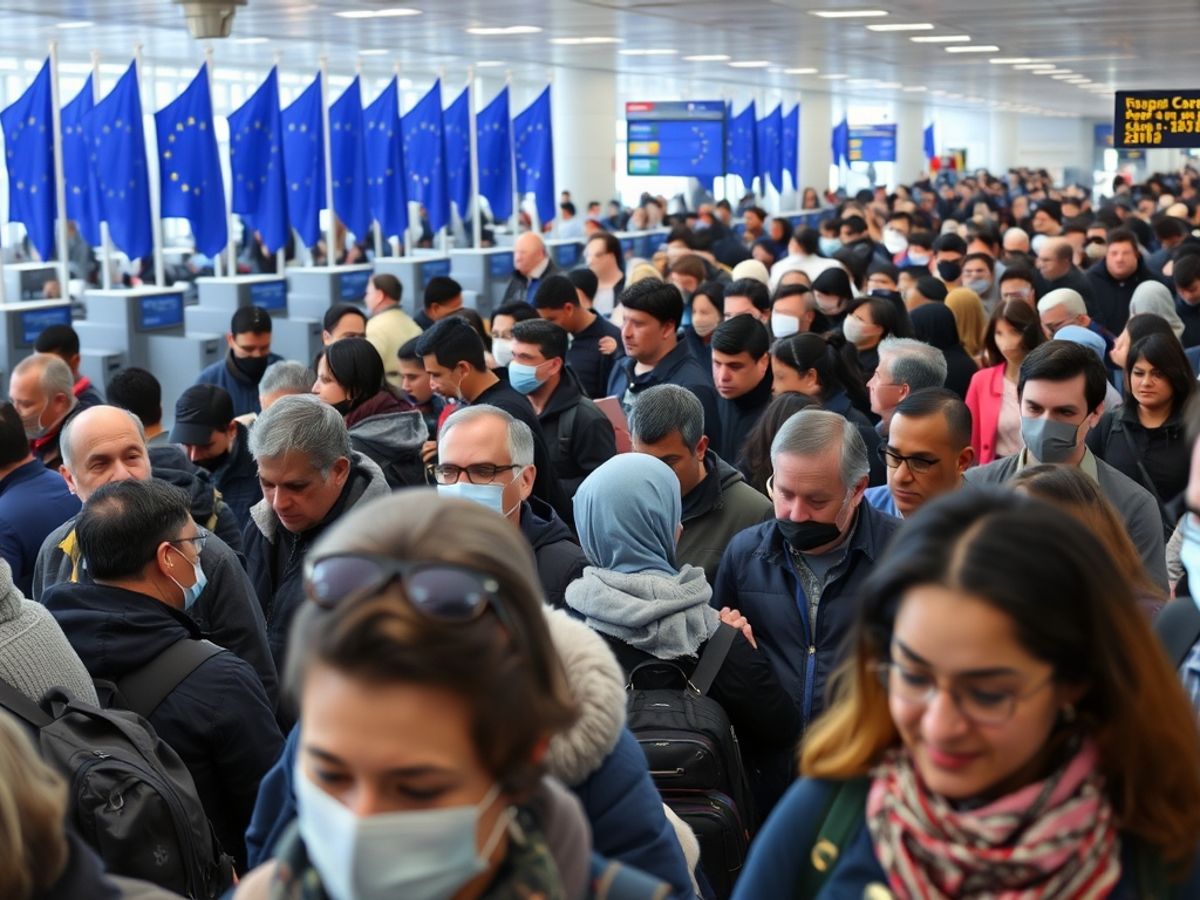The August bank holiday marks the end of summer vacations for many Britons, but this year, travelers returning from Europe may face more than just the usual delays. New EU regulations are set to make travel between the UK and Europe significantly more complicated and time-consuming in the coming years.
New Entry-Exit System (EES)
Starting in a couple of months, the European Union will introduce its new Entry-Exit System (EES) for UK citizens. This system will require fingerprint and biometric recognition for every British visitor to the EU’s Schengen area by the end of 2024. The EES aims to strengthen EU borders but is expected to cause significant delays and increased costs for both travelers and border control authorities.
ETIAS: The De-Facto Visa
From November 2025, UK travelers will need to obtain an Electronic Travel Information and Authorisation System (ETIAS) permit to enter the EU. This permit, which costs €7 (£6) and is valid for three years, is essentially a de-facto visa. The ETIAS will require an online application, personal information, and payment, similar to the US ESTA system.
Impact on Travel
The new regulations are expected to cause substantial delays. For example, car passengers arriving at Dover may face processing times of up to 15 hours before boarding a ferry. Air travelers will be processed upon arrival in Europe, while those using ferries or trains will complete formalities at UK exit points.
Infrastructure Investments
To cope with the new requirements, significant investments are being made in infrastructure. Eurostar is spending £8.5 million on extra facilities at St Pancras, including a new overflow room and ETIAS terminals. In Folkestone, an additional £70 million has been allocated for improvements, and the Port of Dover is expanding its processing facilities for coaches and cars.
Political Implications
The introduction of these new travel regulations comes at a time when the UK government is trying to establish friendlier relations with the EU. Prime Minister Sir Keir Starmer is set to meet with European Commission President Ursula von der Leyen in September to discuss various issues, including the possibility of delaying the new restrictions. However, further delays seem unlikely.
Long-Term Effects
In the long run, these new measures may make travel more efficient for those with the right documentation. However, they will also increase the control of authorities over who may enter the EU. Both the UK and the EU aim to clamp down on illegal migration, but the added bureaucracy is likely to affect how people perceive their own identity and the relationship between the UK and Europe.
Conclusion
For many UK citizens, the extra travel hassle and ETIAS charges may be a price worth paying for “taking back control.” However, for others, the new regulations will add anxiety and delays to their travel plans. As the UK navigates its post-Brexit relationship with the EU, these changes in travel regulations will be a significant factor for ordinary travelers and policymakers alike.













